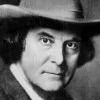Fair Greece! sad relic of departed Worth!
Immortal, though no more; though fallen, great!George Gordon, Lord Byron (1788-1824) English poet
Childe Harold’s Pilgrimage, Canto 2, st. 73 (1812)
(Source)
Quotations about:
fallen
Note not all quotations have been tagged, so Search may find additional quotes on this topic.
This life of ours — if a life so full of such great ills can properly be called a life — bears witness to the fact that, from its very start, the race of mortal men has been a race condemned. Think, first, of that dreadful abyss of ignorance from which all error flows and so engulfs the sons of Adam in a darksome pool that no one can escape without the toll of toils and tears and fears. Then, take our very love for all those things that prove so vain and poisonous and breed so many heartaches, troubles, griefs, and fears; such insane joys in discord, strife, and war; such wrath and plots of enemies, deceivers, sycophants; such fraud and theft and robbery; such perfidy and pride, envy and ambition, homicide and murder, cruelty and savagery, lawlessness and lust; all the shameless passions of the impure — fornication and adultery, incest and unnatural sins, rape and countless other uncleannesses too nasty to be mentioned; the sins against religion — sacrilege and heresy, blasphemy and perjury; the iniquities against our neighbors — calumnies and cheating, lies and false witness, violence to persons and property; the injustices of the courts and the innumerable other miseries and maladies that fill the world, yet escape attention.
It is true that it is wicked men who do such things, but the source of all such sins is that radical canker in the mind and will that is innate in every son of Adam. For, our infancy proves with what ignorance of the truth man enters upon life, and adolescence makes clear to all the world how full we are of folly and concupiscence. In fact, if anyone were left to live as he pleased and to do what he desired, he would go through practically the whole gamut of lawlessnesses and lust — those which I have just listed and, perhaps, others that I refrained from mentioning.[Nam quod ad primam originem pertinet, omnem mortalium progeniem fuisse damnatam, haec ipsa uita, si uita dicenda est, tot et tantis malis plena testatur. Quid enim aliud indicat horrenda quaedam profunditas ignorantiae, ex qua omnis error existit, qui omnes filios Adam tenebroso quodam sinu suscepit, ut homo ab illo liberari sine labore dolore timore non possit? Quid amor ipse tot rerum uanarum atque noxiarum et ex hoc mordaces curae, perturbationes, maerores, formidines, insana gaudia, discordiae, lites, bella, insidiae, iracundiae, inimicitiae, fallacia, adulatio, fraus, furtum, rapina, perfidia, superbia, ambitio, inuidentia, homicidia, parricidia, crudelitas, saeuitia, nequitia, luxuria, petulantia, inpudentia, inpudicitia, fornicationes, adulteria, incesta et contra naturam utriusque sexus tot stupra atque inmunditiae, quas turpe est etiam dicere, sacrilegia, haereses, blasphemiae, periuria, oppressiones innocentium, calumniae, circumuentiones, praeuaricationes, falsa testimonia, iniqua iudicia, uiolentiae, latrocinia et quidquid talium malorum in mentem non uenit et tamen de uita ista hominum non recedit? Verum haec hominum sunt malorum, ab illa tamen erroris et peruersi amoris radice uenientia, cum qua omnis filius Adam nascitur. Nam quis ignorat cum quanta ignorantia ueritatis, quae iam in infantibus manifesta est, et cum quanta abundantia uanae cupiditatis, quae in pueris incipit apparere, homo ueniat in hanc uitam, ita ut, si dimittatur uiuere ut uelit et facere quidquid uelit, in haec facinora et flagitia, quae commemoraui et quae commemorare non potui, uel cuncta uel multa perueniat?]
Augustine of Hippo (354-430) Christian church father, philosopher, saint [b. Aurelius Augustinus]
City of God [De Civitate Dei], Book 22, ch. 22 (22.22) (AD 412-416) [tr. Walsh/Honan (1954)]
(Source)
(Source (Latin)). Alternate translations:Concerning man’s first origin, our present life (if such a miserable estate can be called a life) does sufficiently prove that all his children were condemned in him. What else does that horrid gulf of ignorance confirm, whence all error has birth, and wherein all the sons of Adam are so deeply drenched, that none can be freed without toil, fear, and sorrow? What else does our love of vanities affirm, whence there arises such a tempest of cares, sorrows, repinings, fears, mad exultations, discords, altercations, wars, treasons, furies, hates, deceits, flatteries, thefts, rapines, perjuries, pride, ambition, envy, murder, parricide, cruelty, villainy, luxury, impudence, unchastity, fornications, adulteries, incests, several sorts of sins against nature (filthy even to be named), sacrilege, heresy, blasphemy, oppression, calumnies, circumventions, deceits, false witnesses, false judgments, violence, robberies, and suchlike out of my remembrance to reckon, but not excluded from the life of man? All these evils are belonging to man, and arise out of the root of that error and perverse affection which every son of Adam brings into the world with him. For who does not know in what a mist of ignorance (as we see in infants) and with what a crew of vain desires (as we see in boys) all mankind enters this world, so that if man were left unto his own election, he would fall into most of the aforesaid mischiefs?
[tr. Healey (1610)]That the whole human race has been condemned in its first origin, this life itself, if life it is to be called, bears witness by the host of cruel ills with which it is filled. Is not this proved by the profound and dreadful ignorance which produces all the errors that enfold the children of Adam, and from which no man can be delivered without toil, pain, and fear? Is it not proved by his love of so many vain and hurtful things, which produces gnawing cares, disquiet, griefs, fears, wild joys, quarrels, lawsuits, wars, treasons, angers, hatreds, deceit, flattery, fraud, theft, robbery, perfidy, pride, ambition, envy, murders, parricides, cruelty, ferocity, wickedness, luxury, insolence, impudence, shamelessness, fornications, adulteries, incests, and the numberless uncleannesses and unnatural acts of both sexes, which it is shameful so much as to mention; sacrileges, heresies, blasphemies, perjuries, oppression of the innocent, calumnies, plots, falsehoods, false witnessings, unrighteous judgments, violent deeds, plunderings, and whatever similar wickedness has found its way into the lives of men, though it cannot find its way into the conception of pure minds? These are indeed the crimes of wicked men, yet they spring from that root of error and misplaced love which is born with every son of Adam. For who is there that has not observed with what profound ignorance, manifesting itself even in infancy, and with what superfluity of foolish desires, beginning to appear in boyhood, man comes into this life, so that, were he left to live as he pleased, and to do whatever he pleased, he would plunge into all, or certainly into many of those crimes and iniquities which I mentioned, and could not mention?
[tr. Dods (1871)]This very life, if life it can be called, pregnant with so many dire evils, bears witness that from its very beginning all the progeny of mankind was damned. For what else is the meaning of the dreadful depth of ignorance, from which all error arises, which has taken to its bosom, so to speak, all the sons of Adam in its dark embrace, so that man cannot be freed from that embrace without toil, pain and fear? What is the meaning of the love of so many vain and harmful things, from which come gnawing cares, passions, griefs, fears, mad joys, discords, strifes, wars, plots, wraths, enmities, deceits, flattery, fraud, theft, robbery, perfidy, pride, ambition, envy, murder, parricide, cruelty, ferocity, vileness, riotous living, disorderly conduct, impudence, shamelessness, fornication, adultery, incest and so many outrageous and foul forms of unnatural vice in each sex which it is indecent even to mention, sacrilege, heresies, blasphemies, perjuries, oppressions of the innocent, calumnies, deceptions, duplicities, false witness, unjust verdicts, violence, brigandage and all the other evils which come not to mind, but still do not pass from this life of men? Yes, these are misdeeds of bad men, for they spring from that root of error and perverse love with which every son of Adam is born. Indeed, who does not know with what ignorance of truth, manifest already in infancy, and with what excess of vain desire, which begins to appear in childhood, man comes into this life, so that if he is allowed to live and do as he likes, he falls into all, or many, of these misdeeds and crimes which I have rehearsed, and others which I was unable to rehearse?
[tr. Green (Loeb) (1972)]As for that first origin of mankind, this present life of ours (if a state full of so much grievous misery can be called a life) is evidence that all the mortal descendants of the first man came under condemnation. Such is the clear evidence of that terrifying abyss of ignorance, as it may be called, which is the source of all error, in whose gloomy depths all the sons of Adam are engulfed, so that man cannot be rescued from it without toil, sorrow and fear. What else is the message of all the evils of humanity? The love of futile and harmful satisfactions, with its results: carking anxieties, agitations of mind, disappointments, fears, frenzied joys, quarrels, disputes, wars, treacheries, hatreds, enmities, deceits, flattery, fraud, theft, rapine, perfidy, pride, ambition, envy, murder, parricide, cruelty, savagery, villainy, lust, promiscuity, indecency, unchastity, fornication, adultery, incest, unnatural vice in men and women (disgusting acts too filthy to be named), sacrilege, collusion, false witness, unjust judgement, violence, robbery, and all other such evils which do not immediately come to mind, although they never cease to beset this life of man -- all these evils belong to man in his wickedness, and they all spring from that root of error and perverted affection which every son of Adam brings with him at his birth. For who is not aware of the vast ignorance of the truth (which is abundantly seen in infancy) and the wealth of futile desires (which begins to be obvious in boyhood) which accompanies a man on his entrance into this world, so that if man were left to live as he chose and act as he pleased he would fall into all, or most, of those crimes and sins which I have mentioned -- and others which I was not able to mention.
[tr. Bettenson (1972)]This life itself, if it is to be called a life, attests, by the many great evils with which it is filled, that the whole mortal progeny of the first man stands condemned. What could show this more clearly than that dreadful and profound ignorance from which springs all the error which imprisons the sons of Adam in a dark place from which no man can be delivered without toil, pain and fear? Is this not proved by his love of so many vain and harmful things, from which come gnawing cares, disturbances, griefs, fears, insane joys, discords, litigation, wars, treasons, angers, hatreds, falsehood, flattery, fraud, theft, rapine, perfidy, pride, ambition, envy, homicides, parricides, cruelty, ferocity, wickedness, luxury, insolence, immodesty, unchastity, fornications, adulteries, incests, and so many other impure and unnatural acts of both sexes of which it is shameful even to speak; sacrileges, heresies, blasphemies, perjuries, oppression of the innocent, slanders, plots, prevarications, false witness, unrighteous judgments, acts of violence, robberies, and other such evils which do not immediately come to mind, but which are never far away from men in this life? Truly, these are the crimes of wicked men; yet they come forth from that root of error and perverse love which is born with every son of Adam. For who does not know how great is our ignorance of the truth, manifesting itself even in infancy? Who does not know with what an abundance of vain desires, beginning to appear in boyhood, a man comes into this life? So true is this that, if a man were left to live as he wished and do whatever he liked, he would fall into all, or certainly into many, of those crimes and iniquities which I mentioned and could not mention.
[tr. Dyson (1998)]
Crowley (An Angel who did not so much Fall as Saunter Vaguely Downwards)
Terry Pratchett (1948-2015) English author
Good Omens, “Dramatis Personae” (1990) [with Neil Gaiman]
(Source)
Upon the journey of my life midway,
I found myself within a darkling wood,
Where from the straight path I had gone astray.[Nel mezzo del cammin di nostra vita,
mi ritrovai per una selva oscura,
ché la diritta via era smarrita.]Dante Alighieri (1265-1321) Italian poet
The Divine Comedy [Divina Commedia], Book 1 “Inferno,” Canto 1, l. 1ff (1.1-3) (1309) [tr. Minchin (1885)]
(Source)
Opening words of the work. (Source (Italian)). Alternate translations:When in my middle State of Life I found
Myself entangl'd in a wood obscure,
Having the right path miss'd ...
[tr. Rogers (1782)]When life had labour'd up her midmost stage,
And, weary with her mortal pilgrimage,
Stood in suspense upon the point of Prime;
Far in a pathless grove I chanc'd to stray ...
[tr. Boyd (1802), st. 1]In the midway of this our mortal life,
I found me in a gloomy wood, astray
Gone from the path direct.
[tr. Cary (1814)]Midway the journey of our life along,
I found me in a gloomy woodland dell,
The right road all confounded with the wrong.
[tr. Dayman (1843)]In the middle of the journey of our life I [came to] myself in a dark wood [where] the straight way was lost.
[tr. Carlyle (1849)]Halfway through our mortal life I found
In a dark forest's wild and rugged ground,
Where the right way was lost in shaggy wood,
A rude and savage woodland solitude.
[tr. Bannerman (1850)]In our life's journey at its midway stage
I found myself within a wood obscure,
Where the right path which guided me was lost.
[tr. Johnston (1867)]Midway upon the journey of our life
I found myself within a forest dark,
For the straight-forward pathway had been lost.
[tr. Longfellow (1867)]Halfway upon the road of our life, I came to myself amid a dark wood where the straight path was confused.
[tr. Butler (1885)]Midway upon the road of our life I found myself within a dark wood, for the right way had been missed.
[tr. Norton (1892)]Midway on the journey of our life I found myself within a darksome wood, for the right way was lost.
[tr. Sullivan (1893)]Midway upon the road of our life's journey
I found myself within a dark wood faring;
For the straight way was lost by misadventure.
[tr. Griffith (1908)]In the middle of the journey of our life I came to myself within a dark wood where the straight way was lost.
[tr. Sinclair (1939)]Midway life's journey I was made aware
That I had strayed into a dark forest,
And the right path appeared not anywhere.
[tr. Binyon (1943)]Midway this way of life we're bound upon,
I woke to find myself in a dark wood,
Where the right road was wholly lost and gone.
[tr. Sayers (1949)]Midway in our life's journey, I went astray
from the straight road and woke to find myself
alone in a dark wood.
[tr. Ciardi (1954)]Midway in the journey of our life I found myself in a dark wood, for the straight way was lost.
[tr. Singleton (1970)]Midway along the journey of our life
I woke to find myself in some dark woods,
for I had wandered off from the straight path.
[tr. Musa (1971)]When I had journeyed half of our life's way,
I found myself within a shadowed forest,
for I had lost the path that does not stray.
[tr. Mandelbaum (1980)]Half way along the road we have to go,
I found myself obscured in a great forest,
Bewildered, and I knew I had lost the way.
[tr. Sisson (1981)]Midway on our life's journey, I found myself
In dark woods, the right road lost.
[tr. Pinsky (1994)]In the middle of the journey of our life, I came to myself in a dark wood, for the straight way was lost.
[tr. Durling (1996)]In the middle of the journey of our life, I came to myself, in a dark wood, where the direct way was lost.
[tr. Kline (2002)]Halfway through the story of my life
I came to in a gloomy wood, because I'd
wandered off the path, away from the light.
[tr. Carson (2002)]At one point midway on our path in life,
I came around and found myself now searching
through a dark wood, the right way blurred and lost.
[tr. Kirkpatrick (2006)]Midway in the journey of our life
I came to myself in a dark wood,
for the straight way was lost.
[tr. Hollander/Hollander (2007)]Halfway along the road of this our life
I woke to find myself in a wood so dark
That straight and honest ways were gone, and light
Was lost.
[tr. Raffel (2010)]At the mid-point of the path through life, I found
Myself lost in a wood so dark, the way
Ahead was blotted out.
[tr. James (2013)]Stopped mid-motion in the middle
Of what we call a life, I looked up and saw no sky --
Only a dense cage of leaf, tree, and twig. I was lost.
[tr. Bang (2013)]
And that comrade
who meets his death and destiny, speared or stabbed,
let him die! He dies fighting for fatherland —
no dishonor there![ὃς δέ κεν ὑμέων
βλήμενος ἠὲ τυπεὶς θάνατον καὶ πότμον ἐπίσπῃ
τεθνάτω: οὔ οἱ ἀεικὲς ἀμυνομένῳ περὶ πάτρης
τεθνάμεν.]Homer (fl. 7th-8th C. BC) Greek author
The Iliad [Ἰλιάς], Book 15, l. 494ff (15.494) [Hector] (c. 750 BC) [tr. Fagles (1990), l. 574ff]
(Source)
Original Greek. Alternate translations:If any bravely buy
His fame or fate with wounds or death, in Jove’s name let him die.
Who for his country suffers death, sustains no shameful thing,
[tr. Chapman (1611), l. 452ff]Death is the worst; a fate which all must try;
And for our country 'tis a bliss to die.
The gallant man, though slain in fight he be,
Yet leaves his nation safe, his children free;
Entails a debt on all the grateful state;
His own brave friends shall glory in his fate.
[tr. Pope (1715-20)]Therefore stand fast, and whosoever gall’d
By arrow or by spear, dies -- let him die;
It shall not shame him that he died to serve
His country.
[tr. Cowper (1791), l. 599ff]Whichever of you, wounded or stricken, shall draw on his death and fate, let him die; it is not inglorious to him to die fighting for his country.
[tr. Buckley (1860)]And if there be among you, who this day
Shall meet his doom, by sword or arrow slain,
E’en let him die! a glorious death is his
Who for his country falls.
[tr. Derby (1864)]If any of you is struck by spear or sword and loses his life, let him die; he dies with honour who dies fighting for his country.
[tr. Butler (1898)]If so be any of you, smitten by dart or thrust, shall meet death and fate, let him lie in death. No unseemly thing is it for him to die while fighting for his country.
[tr. Murray (1924)]And if one finds
his death, his end, in some spear-thrust or cast,
then that is that, and no ignoble death
for a man defending his own land.
[tr. Fitzgerald (1974)]
A man is a god in ruins.
Ralph Waldo Emerson (1803-1882) American essayist, lecturer, poet
“Nature,” ch. 8, Nature: Addresses and Lectures (1849)
(Source)
It is not going in [to the brothel] that is a problem, but not being able to come out.
Aristippus of Cyrene (c. 435 – c. 356 BC) Cyrenaic philosopher, Hedonist
Fragment 59 [Mannebach]
(Source)










